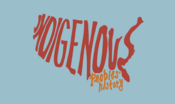Student and Educator Mental Health Matter
As we grapple with the impact of violence following shootings in Atlanta and Boulder—and ongoing stressors surrounding the pandemic—it’s important to be mindful of students’ mental health needs and our own. Share resources like the Crisis Text Line with students, some of whom may need immediate support amidst a crisis. And use these webinars to help you respond to trauma, normalize talking about mental health and continue practicing good self-care.
- SMS SOS
- Student Mental Health Matters
- The Value of Educator Self-Care
